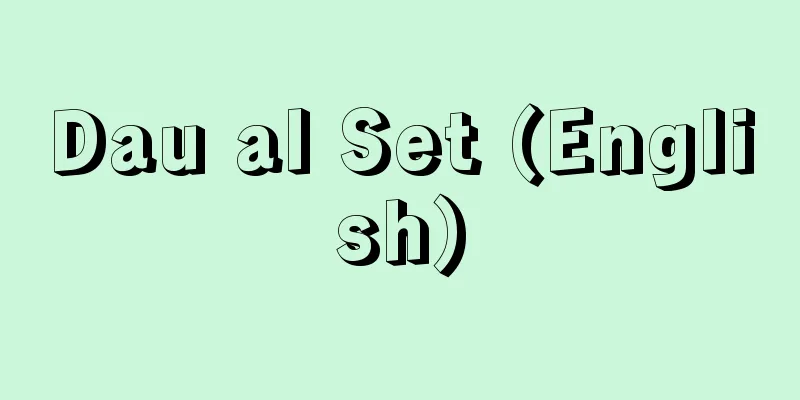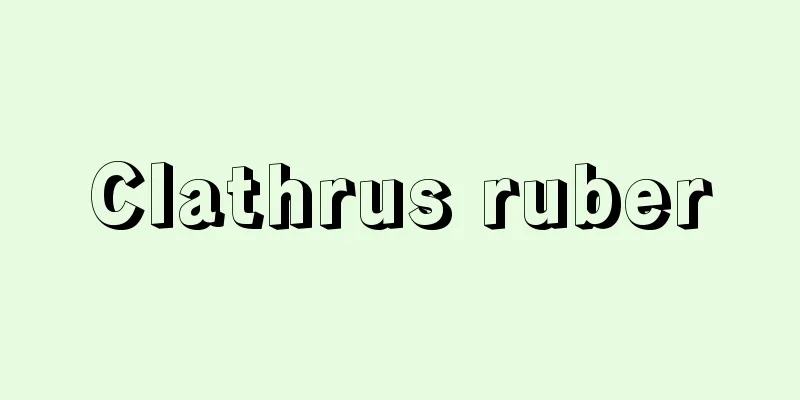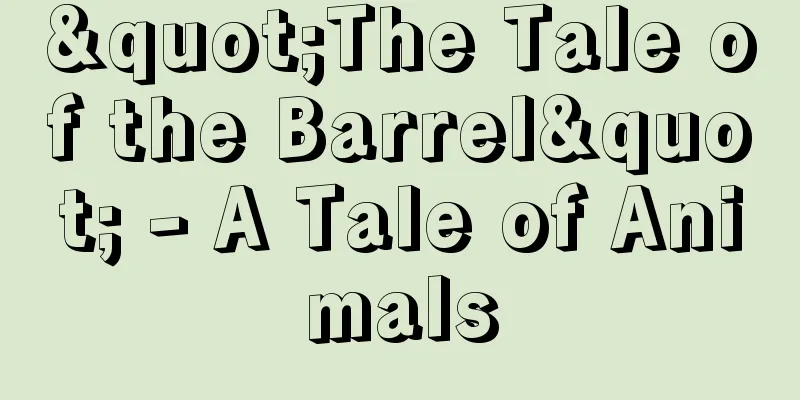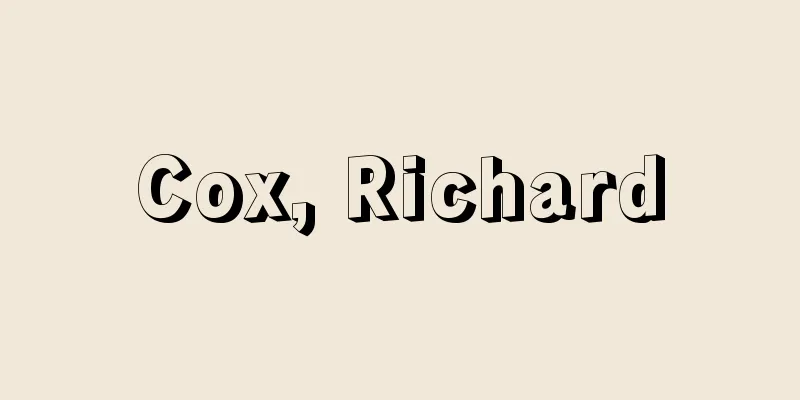Evidence - proof
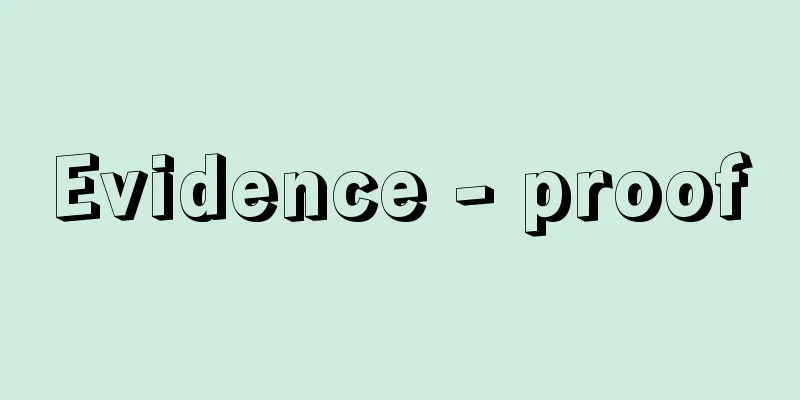
|
In procedural law, it refers to materials that allow the court to obtain an understanding of the existence or non-existence of a fact. It usually refers to the means of proof, such as witnesses or documentary evidence, or the causes of proof, such as the testimony of witnesses or the contents of documentary evidence. It can also refer to the procedures for proof, such as the application of witnesses or the submission of documentary evidence, or the effect of evidence on facts that require proof (proof). [Ichiro Uchida] Evidence in criminal proceedingsFact-finding in criminal proceedings is based on evidence (Criminal Procedure Law, Article 317). In other words, the finding of facts that constitute a crime (Criminal Procedure Law, Article 335, Paragraph 1) or facts that constitute a special element of a crime requires strict evidence, in other words, evidence that is admissible and has been lawfully examined (evidence-based trial principle). A defendant is presumed innocent until found guilty. The burden of proving that a defendant is guilty of a specific crime beyond a reasonable doubt with strict evidence (substantial burden of proof) falls on the prosecutor. In other words, the benefit of the doubt is given to the defendant as a general rule. The probative value of evidence (probative value) is left to the judge's free and rational judgment based on empirical and logical rules (Criminal Procedure Law, Article 318, free judgment principle). The types of evidence are as follows: (1) Human evidence (witnesses, experts, etc.), physical evidence (evidence), and documentary evidence (evidence documents) (1) Confessions obtained through coercion, torture or threat, confessions made after prolonged arrest or detention, and other confessions that are suspected to have been made other than voluntary cannot be used as evidence (Article 319, Paragraphs 1 and 3 of the Law; Article 38, Paragraph 2 of the Constitution). (2) In principle, a document may not be used as evidence in place of a statement made at a trial, nor may a statement made outside a trial that contains the statement of another person be used as evidence (Criminal Procedure Code, Article 320, paragraph 1). However, there are wide-ranging exceptions (Criminal Procedure Code, Articles 321 et seq.). (3) Academic theory and case precedents deny the admissibility of evidence obtained through illegal searches and seizures under certain conditions (Supreme Court First Petty Bench decision of September 7, 1978). In terms of the probative value of evidence, a defendant cannot be found guilty if his or her confession is the only evidence against him or her, regardless of whether it was a confession in court or not (Article 319, Paragraphs 2 and 3 of the ICC; Article 38, Paragraph 3 of the Constitution). In other words, this is the only exception to the principle of free conviction in that a confession requires corroborating evidence. [Ichiro Uchida] Evidence in civil litigationFor a court to make a ruling on a disputed case, the facts must be established and the applicable laws must be made clear. In civil litigation, some of these are determined by the results of the parties' arguments and do not need to be confirmed, such as confessions in court, but in other cases, the court must determine the facts that should be applied to the laws when making a ruling. In order to ensure that the factual findings are not the subjective or arbitrary judgment of the judge, but are recognized as objectively fair, it is required that the materials are collected and submitted during the trial. This is where evidence in litigation is needed. In other words, the materials for such judgments are evidence, which refers to the means, methods, and materials obtained in litigation that the judge obtains through the action of the five senses, such as sight and hearing, and is used in various ways as follows: (1) Methods of Evidence: Tangible objects (five types): witnesses, experts, the parties themselves, documents, and items for verification that the parties request to be examined in order to enable the court to determine the truth of the facts, and that the court examines in order to obtain materials for determining the facts. (2) Evidence: The contents that the court has obtained by examining the evidentiary methods (testimony, expert opinions, statements by the parties themselves as evidentiary methods, contents of documents, results of verification, etc.). (3) Evidence: The evidentiary materials and circumstances that actually formed the basis of the court's determination of facts (the results of evidence examination, testimony that the judge finds credible, the overall gist of the arguments, etc.). (4) Admissibility of evidence This refers to the ability of materials that can be used as evidence, that is, methods of evidence, to be considered as evidence. In principle, all methods of evidence have admissibility of evidence, but there are exceptions in the Civil Procedure Code that deny admissibility of evidence. One example is the case where a specific person is not required to testify on a specific matter (Article 191, Paragraph 1 of the Civil Procedure Code). (5) Probative value The effect of the examination of evidence, by which the court has come to a conviction about the subject of proof, is called probative value from the perspective of that evidence. Other classification methods include personal evidence and physical evidence, main evidence and counter-evidence, direct evidence and indirect evidence, simple evidence and comprehensive evidence, etc. [Takeyoshi Uchida and Tetsuo Kato] [References] | | | | | | | | | | | |Source: Shogakukan Encyclopedia Nipponica About Encyclopedia Nipponica Information | Legend |
|
訴訟法上、裁判所に事実の存否について心証を得させるための資料をいう。証人や書証のような証拠方法、または証人の証言や書証の内容のような証拠原因をいうのが普通である。証人の申請や書証の提出のような立証手続または要証事実に対する証拠の効果(証明)を表現する場合もある。 [内田一郎] 刑事訴訟における証拠刑事訴訟における事実認定は証拠によることになっている(刑事訴訟法317条)。すなわち、罪となるべき事実(同法335条1項)または犯罪の特別構成要件に該当する事実の認定は、厳格な証拠、換言すれば、証拠能力がありかつ適法な証拠調べを経た証拠によることを必要とする(証拠裁判主義)。被告人は有罪とされるまでは、無罪と推定される。被告人が特定の犯罪について有罪であることを厳格な証拠で、合理的な疑いを超える程度まで立証する責任(実体的挙証責任)は、検察官が負担する。すなわち、疑わしきは被告人の利益に解されるのが原則である。証拠の証明力(証拠価値)は、裁判官の経験法則および論理法則にのっとった合理的な自由な判断にゆだねられている(同法318条、自由心証主義)。証拠の種類としては、以下のようなものがある。 (1)人証(証人や鑑定人など)、物証(証拠物)、書証(証拠書類) (1)強制、拷問または脅迫による自白、不当に長く抑留または拘禁されたのちの自白、その他任意にされたものでない疑いのある自白は、これを証拠とすることができない(同法319条1項・3項、憲法38条2項)。 (2)公判期日における供述にかえて書面を証拠とし、または公判期日外における他の者の供述を内容とする供述を証拠とすることは原則としてできない(刑事訴訟法320条1項)。ただし広い範囲で例外が認められている(同法321条以下)。 (3)学説・判例は、違法な捜索、押収によって獲得された証拠物の証拠能力を一定の要件のもとで否定している(昭和53年9月7日最高裁判所第一小法廷判決)。 証拠の証明力の点で、被告人は、公判廷における自白であると否とを問わず、その自白が自己に不利益な唯一の証拠である場合には、有罪とされない(同法319条2項・3項、憲法38条3項)。すなわち、自白には補強証拠を必要とするという点で自由心証主義の唯一の例外となっている。 [内田一郎] 民事訴訟における証拠裁判所が争いのある事件について判決するには、事実関係が確定され、これに適用する法規が明確にならなければならない。民事訴訟においては、このなかで当事者の弁論の結果によって決まり、裁判上の自白のように確かめる必要のないものもあるが、そうでない限りは、裁判所は判決するについて法規に当てはめるべき事実を自ら認定しなければならない。この際その事実認定が裁判官の主観的・恣意(しい)的判断でなく、客観的に公正であると認められることを担保するためには、その資料が訴訟審理によって収集され提出されたものであることが要求される。ここに訴訟における証拠の必要がある。つまり、前記のような判断のための材料が証拠であって、換言すれば、裁判官が視覚や聴覚などの五官の作用によって獲得する訴訟上の手段、方法、その獲得した資料などをいい、次のようにいろいろの意味に用いられている。 (1)証拠方法 当事者が裁判所に事実の真偽を判断させるためにその取調べを求め、また裁判所が事実認定の資料を得るために取り調べる有形物(証人、鑑定人、当事者本人、文書、検証物の5種)。 (2)証拠資料 裁判所が証拠方法を取り調べることによって感知した内容(証言、鑑定意見、証拠方法としての当事者本人の供述、文書の記載内容、検証の結果など)。 (3)証拠原因 裁判所が事実認定をするにあたり現実にその心証の基礎となった証拠資料や情況(証拠調べの結果、裁判官が信用できる証言、弁論の全趣旨など)。 (4)証拠能力 証拠になりうる材料、つまり証拠方法が証拠の適格をもつことをいう。すべての証拠方法は、原則として証拠能力をもつが、民事訴訟法においては例外として証拠能力を否定している場合がある。特定事項につき特定人に証人義務を課さない(民事訴訟法191条1項)のはその例である。 (5)証拠力 証拠調べの結果、裁判所が立証の客体について心証を得るに至った効果をその証拠の立場から証拠力という。このほかの分類方法として、人証と物証、本証と反証、直接証拠と間接証拠、単純証拠と総合証拠などがある。 [内田武吉・加藤哲夫] [参照項目] | | | | | | | | | | | |出典 小学館 日本大百科全書(ニッポニカ)日本大百科全書(ニッポニカ)について 情報 | 凡例 |
Recommend
Lesser moray eel
A marine fish belonging to the family Moray eel o...
Shozo Namiki
A mid-Edo period Kabuki playwright. First generati...
Kaitokudo
A school funded by townspeople that was establish...
Özbeg-Qazaq (English spelling)
At that time, under pressure from the Uzbek Abu a...
Madrazo (English spelling) Federico de Madrazo y Kuntz
1815‐94 Spanish painter. Born in Rome, died in Mad...
Brian
Occupation/Title singer nationality US date of bi...
Byelorussian
...the language of the Belarusian people, the bas...
XE - XE
…1 X-ray unit ≒ 1.002× 10−13 m. The symbols are X...
Dario (English spelling) Rubén Dario
Nicaraguan poet. His real name was Félix Rubén Ga...
Premature baby - Mijukuji
Premature and low birth weight babies Generally, a...
The fort of Entremont - The fort of Entremont
… The origins of Aix date back to the 4th century...
Takahashi Shoun - Takahashi Shoun
Year of death: July 27, 1586 (September 10, 1586) ...
Cutting - Sessaku
In a broad sense, it includes processing using abr...
Mounet‐Sully
1841‐1916 French actor. His real name was Jean Sul...
Goudsmit, SA (English spelling) GoudsmitSA
… Electron spin was introduced to explain the exi...
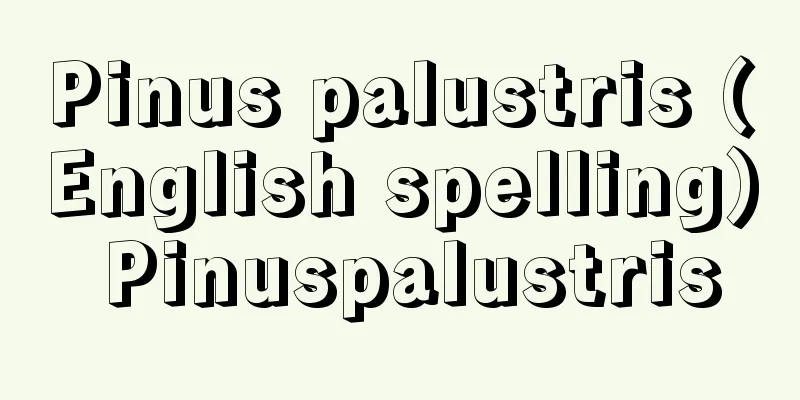
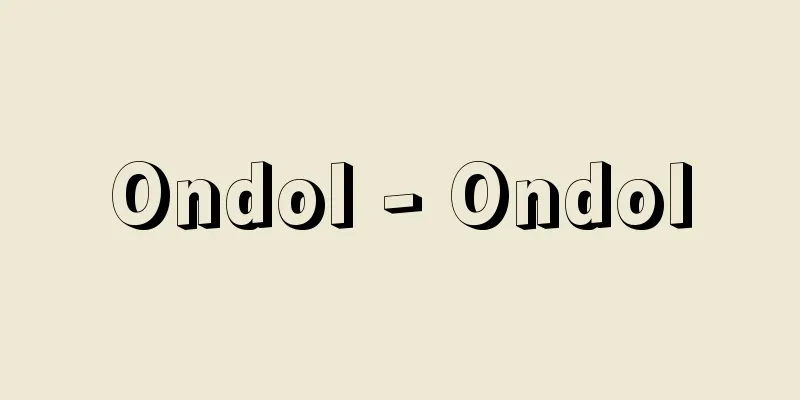
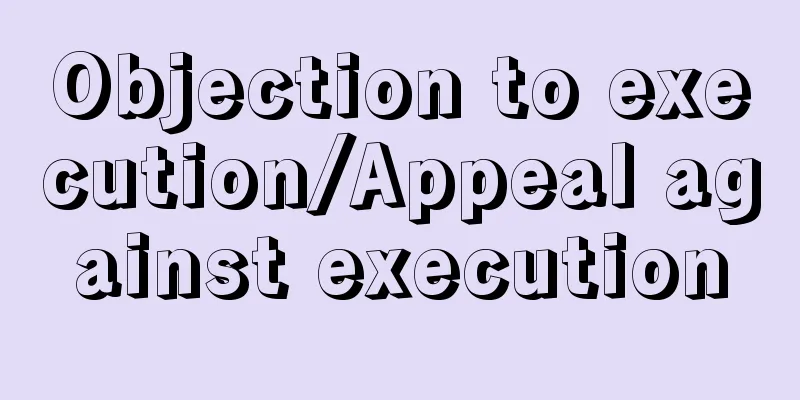
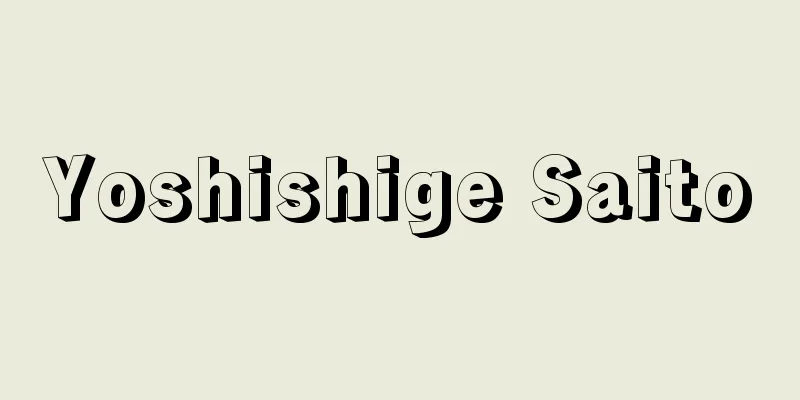
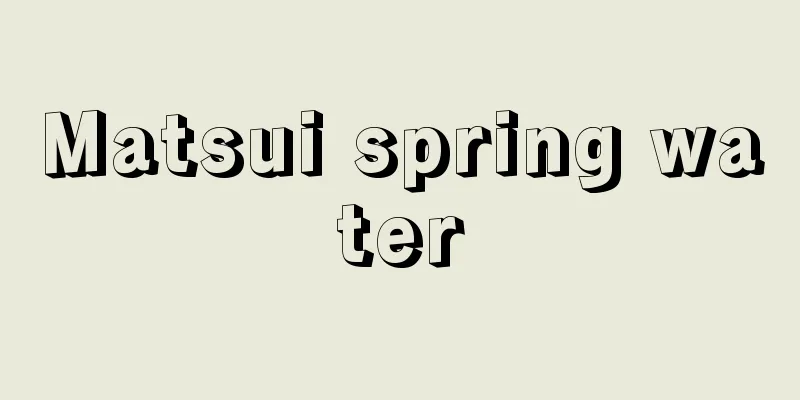
![Nebuchadnezzar [II] - Nebuchadnezzar](/upload/images/67cc7704c5e10.webp)
